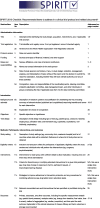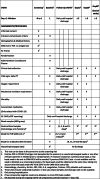Evaluation of convalescent plasma versus standard of care for the treatment of COVID-19 in hospitalized patients: study protocol for a phase 2 randomized, open-label, controlled, multicenter trial
- PMID: 33472681
- PMCID: PMC7816149
- DOI: 10.1186/s13063-020-05011-9
Evaluation of convalescent plasma versus standard of care for the treatment of COVID-19 in hospitalized patients: study protocol for a phase 2 randomized, open-label, controlled, multicenter trial
Abstract
Background: COVID-19 is a respiratory disease caused by a novel coronavirus (SARS-CoV-2) and causes substantial morbidity and mortality. At the time this clinical trial was planned, there were no available vaccine or therapeutic agents with proven efficacy, but the severity of the condition prompted the use of several pharmacological and non-pharmacological interventions. It has long been hypothesized that the use of convalescent plasma (CP) from infected patients who have developed an effective immune response is likely to be an option for the treatment of patients with a variety of severe acute respiratory infections (SARI) of viral etiology. The aim of this study is to assess the efficacy and safety of convalescent plasma in adult patients with severe COVID-19 pneumonia.
Methods/design: The ConPlas-19 study is a multicenter, randomized, open-label controlled trial. The study has been planned to include 278 adult patients hospitalized with severe COVID-19 infection not requiring mechanical ventilation (invasive or non-invasive). Subjects are randomly assigned in a 1:1 ratio (139 per treatment arm), stratified by center, to receive intravenously administered CP (single infusion) plus SOC or SOC alone, and are to be followed for 30 days. The primary endpoint of the study is the proportion of patients that progress to category 5, 6, or 7 (on the 7-point ordinal scale proposed by the WHO) at day 15. Interim analyses for efficacy and/or futility will be conducted once 20%, 40%, and 60% of the planned sample size are enrolled and complete D15 assessment.
Discussion: This clinical trial is designed to evaluate the efficacy and safety of passive immunotherapy with convalescent plasma for the treatment of adult patients hospitalized with COVID-19. The results of this study are expected to contribute to establishing the potential place of CP in the therapeutics for a new viral disease.
Trial registration: ClinicalTrials.gov NCT04345523 . Registered on 30 March, 2020. First posted date: April 14, 2020.
Keywords: Antibodies; COVID-19; Controlled trial; Convalescent plasma (CP); Hospitalized patients; Neutralizing antibodies; Protocol; Randomized.
Conflict of interest statement
The authors declare that they have no competing interests.
Figures




References
-
- Mair-Jenkins J, Saavedra-Campos M, Baillie JK, Cleary P, Khaw FM, Lim WS, et al. The effectiveness of convalescent plasma and hyperimmune immunoglobulin for the treatment of severe acute respiratory infections of viral etiology: a systematic review and exploratory meta-analysis. J Infect Dis. 2015;211(1):80–90. doi: 10.1093/infdis/jiu396. - DOI - PMC - PubMed
Publication types
MeSH terms
Associated data
Grants and funding
LinkOut - more resources
Full Text Sources
Other Literature Sources
Medical
Miscellaneous

